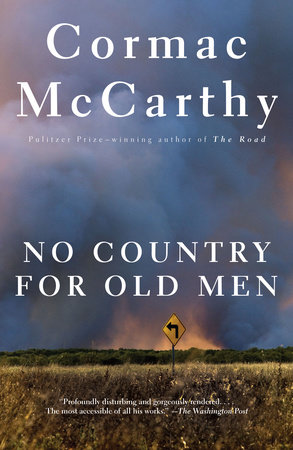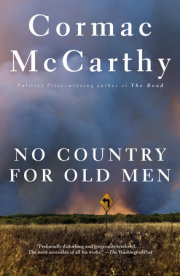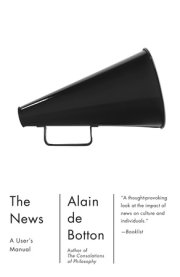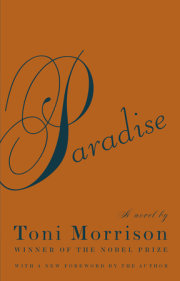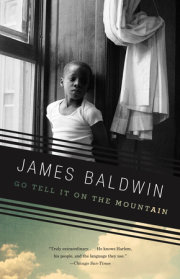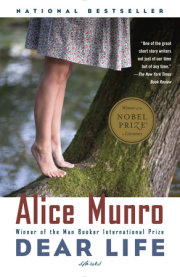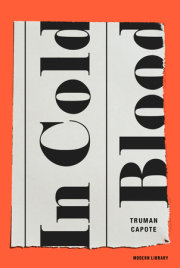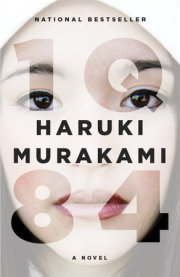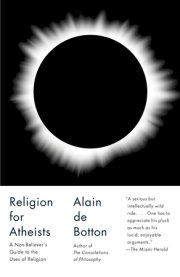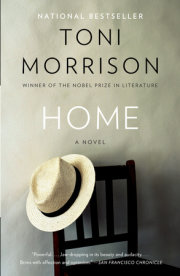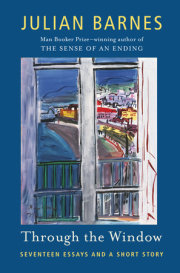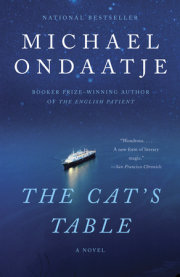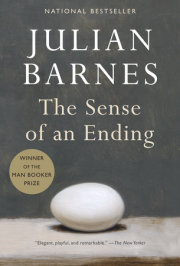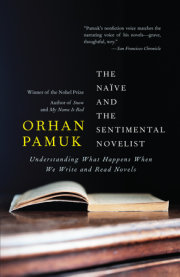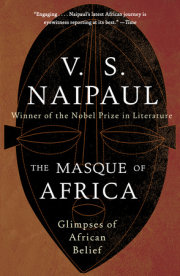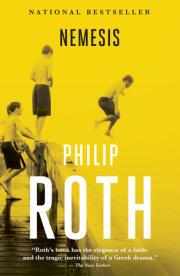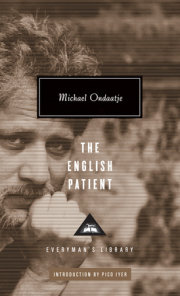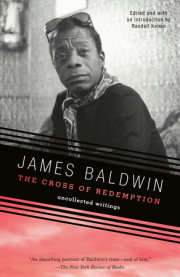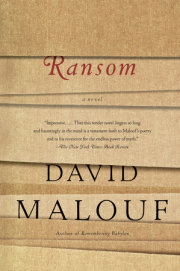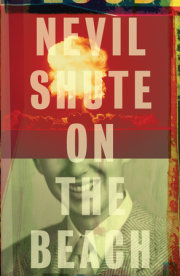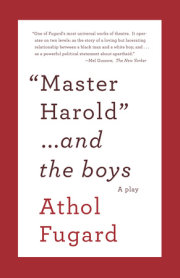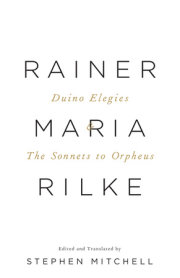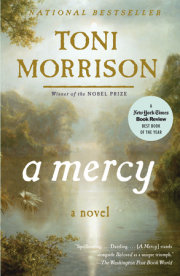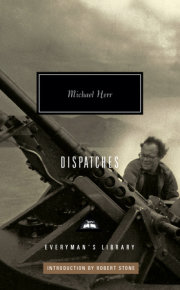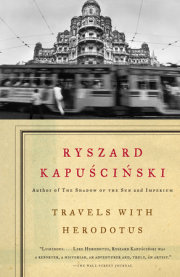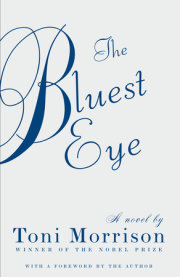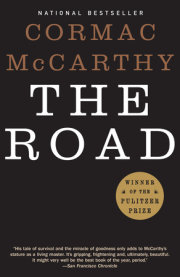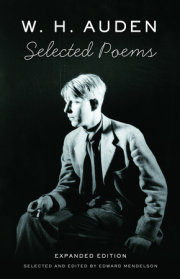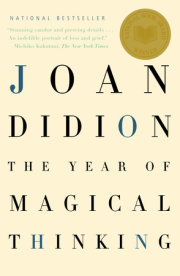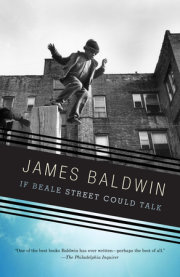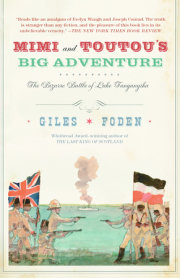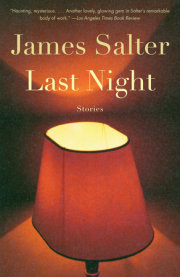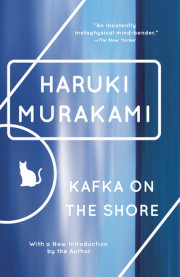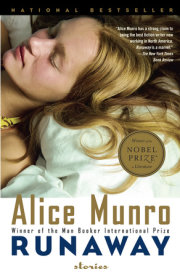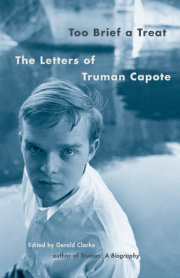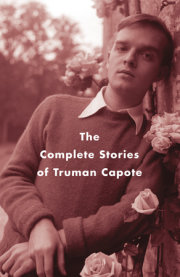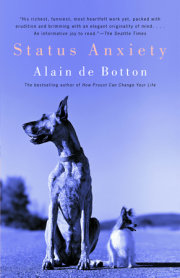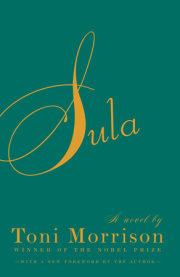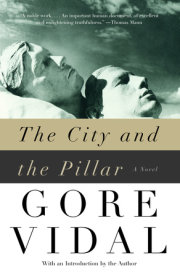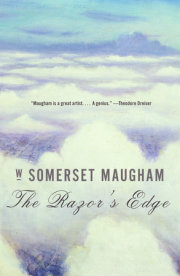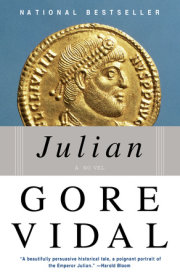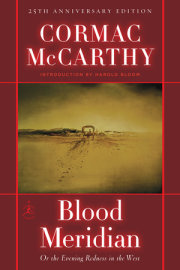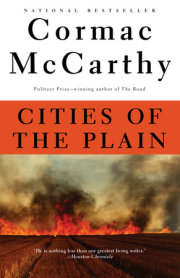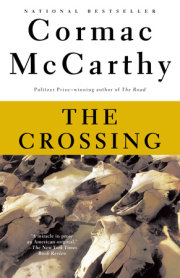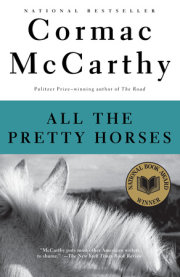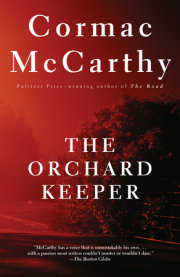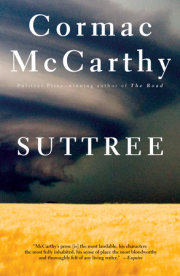I
I sent one boy to the gaschamber at Huntsville. One and only one. My arrest and my testimony. I went up there and visited with him two or three times. Three times. The last time was the day of his execution. I didnt have to go but I did. I sure didnt want to. He’d killed a fourteen year old girl and I can tell you right now I never did have no great desire to visit with him let alone go to his execution but I done it. The papers said it was a crime of passion and he told me there wasnt no passion to it. He’d been datin this girl, young as she was. He was nineteen. And he told me that he had been plannin to kill somebody for about as long as he could remember. Said that if they turned him out he’d do it again. Said he knew he was goin to hell. Told it to me out of his own mouth. I dont know what to make of that. I surely dont. I thought I’d never seen a person like that and it got me to wonderin if maybe he was some new kind. I watched them strap him into the seat and shut the door. He might of looked a bit nervous about it but that was about all. I really believe that he knew he was goin to be in hell in fifteen minutes. I believe that. And I’ve thought about that a lot. He was not hard to talk to. Called me Sheriff. But I didnt know what to say to him. What do you say to a man that by his own admission has no soul? Why would you say anything? I’ve thought about it a good deal. But he wasnt nothin compared to what was comin down the pike.
They say the eyes are the windows to the soul. I dont know what them eyes was the windows to and I guess I’d as soon not know. But there is another view of the world out there and other eyes to see it and that’s where this is goin. It has done brought me to a place in my life I would not of thought I’d of come to. Somewhere out there is a true and living prophet of destruction and I dont want to confront him. I know he’s real. I have seen his work. I walked in front of those eyes once. I wont do it again. I wont push my chips forward and stand up and go out to meet him. It aint just bein older. I wish that it was. I cant say that it’s even what you are willin to do. Because I always knew that you had to be willin to die to even do this job. That was always true. Not to sound glorious about it or nothin but you do. If you aint they’ll know it. They’ll see it in a heartbeat. I think it is more like what you are willin to become. And I think a man would have to put his soul at hazard. And I wont do that. I think now that maybe I never would.
The deputy left Chigurh standing in the corner of the office with his hands cuffed behind him while he sat in the swivelchair and took off his hat and put his feet up and called Lamar on the mobile.
Just walked in the door. Sheriff he had some sort of thing on him like one of them oxygen tanks for emphysema or whatever. Then he had a hose that run down the inside of his sleeve and went to one of them stunguns like they use at the slaughterhouse. Yessir. Well that’s what it looks like. You can see it when you get in. Yessir. I got it covered. Yessir.
When he stood up out of the chair he swung the keys off his belt and opened the locked desk drawer to get the keys to the jail. He was slightly bent over when Chigurh squatted and scooted his manacled hands beneath him to the back of his knees. In the same motion he sat and rocked backward and passed the chain under his feet and then stood instantly and effortlessly. If it looked like a thing he’d practiced many times it was. He dropped his cuffed hands over the deputy’s head and leaped into the air and slammed both knees against the back of the deputy’s neck and hauled back on the chain.
They went to the floor. The deputy was trying to get his hands inside the chain but he could not. Chigurh lay there pulling back on the bracelets with his knees between his arms and his face averted. The deputy was flailing wildly and he’d begun to walk sideways over the floor in a circle, kicking over the wastebasket, kicking the chair across the room. He kicked shut the door and he wrapped the throwrug in a wad about them. He was gurgling and bleeding from the mouth. He was strangling on his own blood. Chigurh only hauled the harder. The nickelplated cuffs bit to the bone. The deputy’s right carotid artery burst and a jet of blood shot across the room and hit the wall and ran down it. The deputy’s legs slowed and then stopped. He lay jerking. Then he stopped moving altogether. Chigurh lay breathing quietly, holding him. When he got up he took the keys from the deputy’s belt and released himself and put the deputy’s revolver in the waistband of his trousers and went into the bathroom.
He ran cold water over his wrists until they stopped bleeding and he tore strips from a handtowel with his teeth and wrapped his wrists and went back into the office. He sat on the desk and fastened the toweling with tape from a dispenser, studying the dead man gaping up from the floor. When he was done he got the deputy’s wallet out of his pocket and took the money and put it in the pocket of his shirt and dropped the wallet to the floor. Then he picked up his airtank and the stungun and walked out the door and got into the deputy’s car and started the engine and backed around and pulled out and headed up the road.
On the interstate he picked out a late model Ford sedan with a single driver and turned on the lights and hit the siren briefly. The car pulled onto the shoulder. Chigurh pulled in behind him and shut off the engine and slung the tank across his shoulder and stepped out. The man was watching him in the rearview mirror as he walked up.
What’s the problem, officer? he said.
Sir would you mind stepping out of the vehicle?
The man opened the door and stepped out. What’s this about? he said.
Would you step away from the vehicle please.
The man stepped away from the vehicle. Chigurh could see the doubt come into his eyes at this bloodstained figure before him but it came too late. He placed his hand on the man’s head like a faith healer. The pneumatic hiss and click of the plunger sounded like a door closing. The man slid soundlessly to the ground, a round hole in his forehead from which the blood bubbled and ran down into his eyes carrying with it his slowly uncoupling world visible to see. Chigurh wiped his hand with his handkerchief. I just didnt want you to get blood on the car, he said.
Moss sat with the heels of his boots dug into the volcanic gravel of the ridge and glassed the desert below him with a pair of twelve power german binoculars. His hat pushed back on his head. Elbows propped on his knees. The rifle strapped over his shoulder with a harnessleather sling was a heavybarreled .270 on a ’98 Mauser action with a laminated stock of maple and walnut. It carried a Unertl telescopic sight of the same power as the binoculars. The antelope were a little under a mile away. The sun was up less than an hour and the shadow of the ridge and the datilla and the rocks fell far out across the floodplain below him. Somewhere out there was the shadow of Moss himself. He lowered the binoculars and sat studying the land. Far to the south the raw mountains of Mexico. The breaks of the river. To the west the baked terracotta terrain of the run- ning borderlands. He spat dryly and wiped his mouth on the shoulder of his cotton workshirt.
The rifle would shoot half minute of angle groups. Five inch groups at one thousand yards. The spot he’d picked to shoot from lay just below a long talus of lava scree and it would put him well within that distance. Except that it would take the better part of an hour to get there and the antelope were grazing away from him. The best he could say about any of it was that there was no wind.
When he got to the foot of the talus he raised himself slowly and looked for the antelope. They’d not moved far from where he last saw them but the shot was still a good seven hundred yards. He studied the animals through the binoculars. In the compressed air motes and heat distortion. A low haze of shimmering dust and pollen. There was no other cover and there wasnt going to be any other shot.
He wallowed down in the scree and pulled off one boot and laid it over the rocks and lowered the forearm of the rifle down into the leather and pushed off the safety with his thumb and sighted through the scope.
They stood with their heads up, all of them, looking at him.
Damn, he whispered. The sun was behind him so they couldnt very well have seen light reflect off the glass of the scope. They had just flat seen him.
The rifle had a Canjar trigger set to nine ounces and he pulled the rifle and the boot toward him with great care and sighted again and jacked the crosshairs slightly up the back of the animal standing most broadly to him. He knew the exact drop of the bullet in hundred yard increments. It was the distance that was uncertain. He laid his finger in the curve of the trigger. The boar’s tooth he wore on a gold chain spooled onto the rocks inside his elbow.
Copyright © 2005 by Cormac McCarthy. All rights reserved. No part of this excerpt may be reproduced or reprinted without permission in writing from the publisher.

